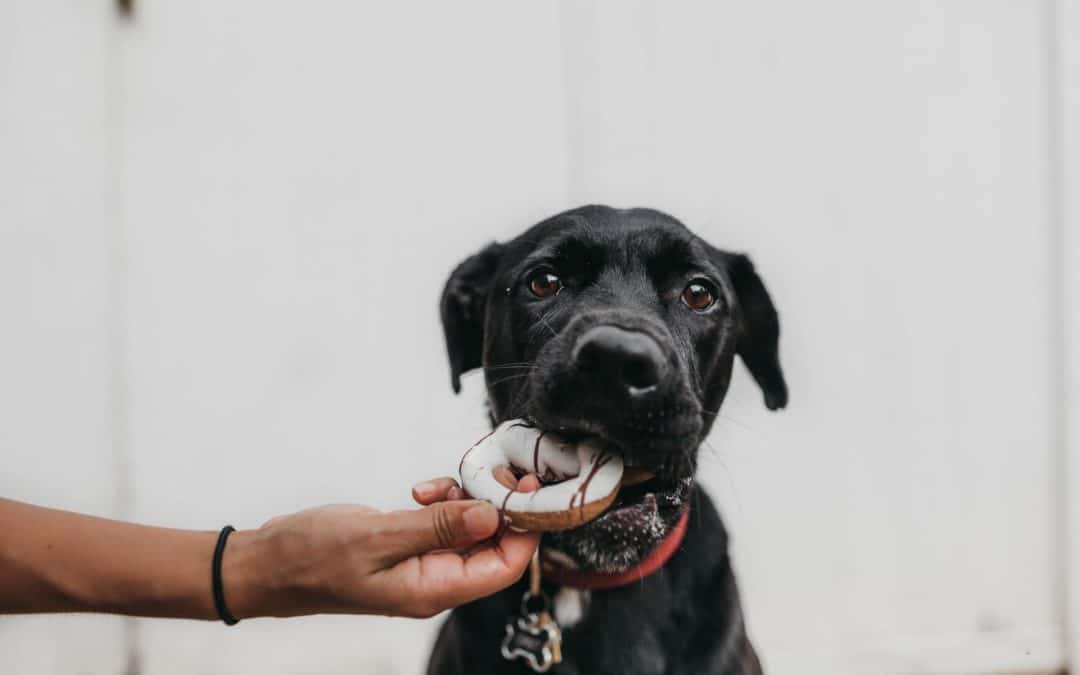Dogs might not live as long as we do, but they can still develop some serious—and painful—dental problems as they age. From bad breath to cavities and gingivitis, dogs can fall victim to many of the same dental issues as humans. And since dogs use their mouths a lot more than we do, it’s very important to make sure their teeth stay in good shape. Here’s how to prevent poor dental health so your dog can continue eating and playing without pain.
The Four Most Common Dental Problems in Dogs
1: Bad Breath
While it may be normal for your dog to have stinky breath after eating something nasty, it’s not normal for them to have bad breath all the time. Persistent bad breath is usually due to plaque and tartar buildup, and it could be a sign of tooth decay or periodontal disease.
2: Cracked or Broken Teeth
All dogs need to chew—it’s just part of being a dog. And although gnawing on a carrot or a dental treat can help keep their teeth clean, if they bite down on something too hard (like a bone or a stick) they could break a tooth. Fractured teeth are one of the most common dental problems in dogs, and often lead to painful infections.
3: Gingivitis
Plaque and tartar buildup on your dog’s teeth causes gingivitis, the first stage of a chronic infection known as periodontal disease. As the disease progresses, it causes inflamed and bleeding gums. It eventually leads to tooth loss, and can cause a lot of pain.
4: Tooth Decay
Dogs do a lot of chewing and gnawing (some more than others) and it takes a toll on their tooth enamel. If their enamel gets scratched or worn too thin, they can get cavities and painful infections like tooth abscesses.
Some Dogs Are More Prone to Dental Problems Than Others
Some dogs are more likely to have bad teeth because of their genetics. Dental problems are common in small dogs like Yorkies and Chihuahuas, as well as breeds with flat faces like Bulldogs and Shih Tzus.
Older dogs are also more prone to develop dental problems. Because they use their teeth so much, the older they get, the more likely they are to suffer a cracked tooth or enamel erosion. And unless they’ve had regular veterinary dental care, eventually the buildup of plaque and tartar will take its toll.
How to Tell If Your Dog Has Tooth Pain
Dogs will usually hide their pain—it’s an instinct that kept them safe from larger predators. However, there are always subtle clues you can pick up on. Changes in behavior, like a loss of appetite or losing interest in a favorite chew toy could mean that your dog’s teeth are hurting.
If you notice any cracks in your dog’s teeth, or if they are starting to look yellow along the gum line, they could be suffering from dental pain. Bad breath, bleeding gums, excessive drooling, and whimpering when eating or drinking can also be signs of tooth pain.
How to Prevent Dental Problems in Dogs
Dogs can’t brush their teeth every day, and they can’t schedule dentist appointments either. It’s up to you to take good care of your dog’s dental health, so they won’t have to suffer the pain of a dying tooth or undergo a tooth extraction. But you can prevent dental problems in dogs the same way that you maintain your own dental health—with daily brushing and yearly exams.
Daily Brushing
The first step toward good doggy dental health is daily brushing. Dental treats can help, but brushing is the most effective way to remove plaque and tartar. You’ll need to get a doggy toothbrush that’s specially angled to reach their teeth, and a special toothpaste that’s formulated (and flavored) specifically for dogs. Then it’s just a matter of getting your dog used to the brushing routine—it might take some practice, but your patience will pay off in the long run.
Annual Cleanings
Dogs need teeth cleanings from a veterinary dentist at least once a year to remove plaque and tartar buildup. Annual dental cleanings can help prevent periodontal disease, tooth decay, tooth loss, and even bad breath. Some people are scared of any procedure where their dog has to be under anesthesia. However, teeth cleanings are perfectly safe and can prevent the need for tooth extractions and other dental surgeries in the future. We will carefully monitor your dog during their treatment and until they have fully recovered, so there’s no need to worry.
Dental Care for Dogs in Gilbert, Arizona
At Anasazi Animal Clinic, we provide professional teeth cleanings and comprehensive dental exams for dogs. And if your dog needs a filling or a root canal or a tooth extraction, we can provide the care they need to relieve their pain so they can eat and play normally again. If your dog is due for a dental cleaning, don’t delay—the longer that plaque and tartar are allowed to accumulate, the worse your dog’s dental problems will become. Give us a call at 480-497-0505 or send us a message to schedule an appointment today.
Photo by Camylla Battani on Unsplash used with permission under the Creative Commons license for commercial use 12/28/2023.

